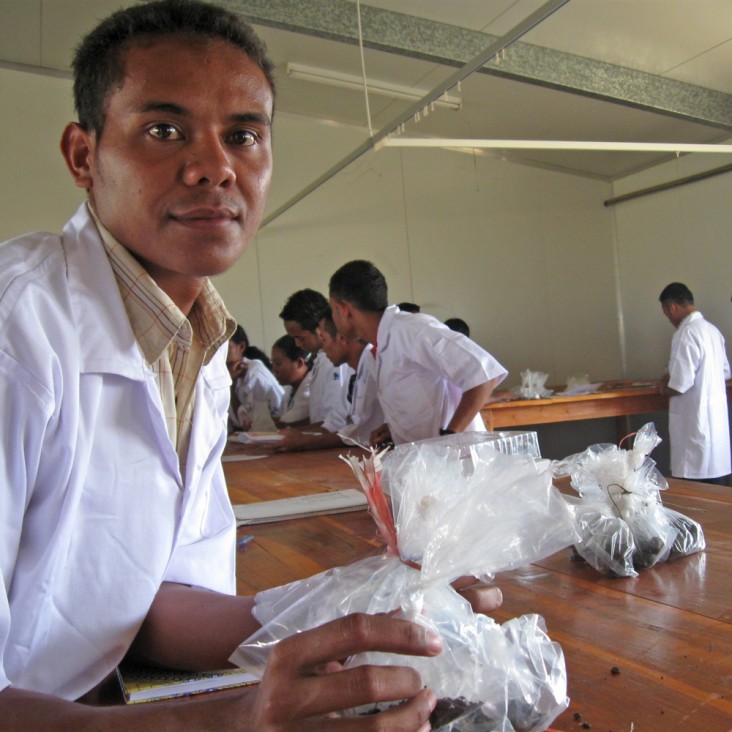
Almost all of Timor-Leste's rural population depends on agriculture. For the country’s large youth population, the sector represents great opportunity. Although agricultural technical schools are not a new industry in Timor-Leste, developing the specific business training within these schools for budding entrepreneurs is a new and exciting facet.
To meet the need and ensure a program that proved inspiring, USAID brought in Land O'Lakes to design, develop, and implement the one-year vocational training curriculum. This innovative program has trained and graduated nearly 300 students since its inception in 2008.
“After a student graduated from the agriculture schools before, they didn’t have enough skills to implement their knowledge in the field. That’s why the agribusiness program is very useful. [Students] have one more year to get specialized skills and practical training,” says Ipolito da Costa, the national director for technical education and training at the Ministry of Agriculture.
Seventy percent of the program’s graduates have either found jobs or are continuing their education. While many have chosen to pursue their own business, others work at local nongovernmental organizations, or for the government. All are giving back to their communities in greater capacities than could have been possible before entering the program.
Mario Soares created his own job after he graduated from the program in 2010. The 23-year-old co-founded a company called Hagulos, a farm production group that grows and sells vegetables in western Timor-Leste.
“With my business, we earn money every day. We don’t wait until the end of the month for a salary, and I don’t have to do only what the boss tells me to,” says Soares. The skills he has learned through the agribusiness program have been vital to his success as an entrepreneur.
As USAID's project comes to an end, the Ministry of Agriculture is taking charge of the curriculum and its components at all three of its technical schools. The continuation of the project by the government is a testament to its success and sustainability.







Comment
Make a general inquiry or suggest an improvement.